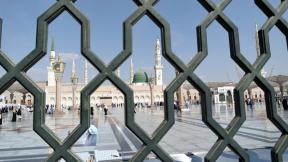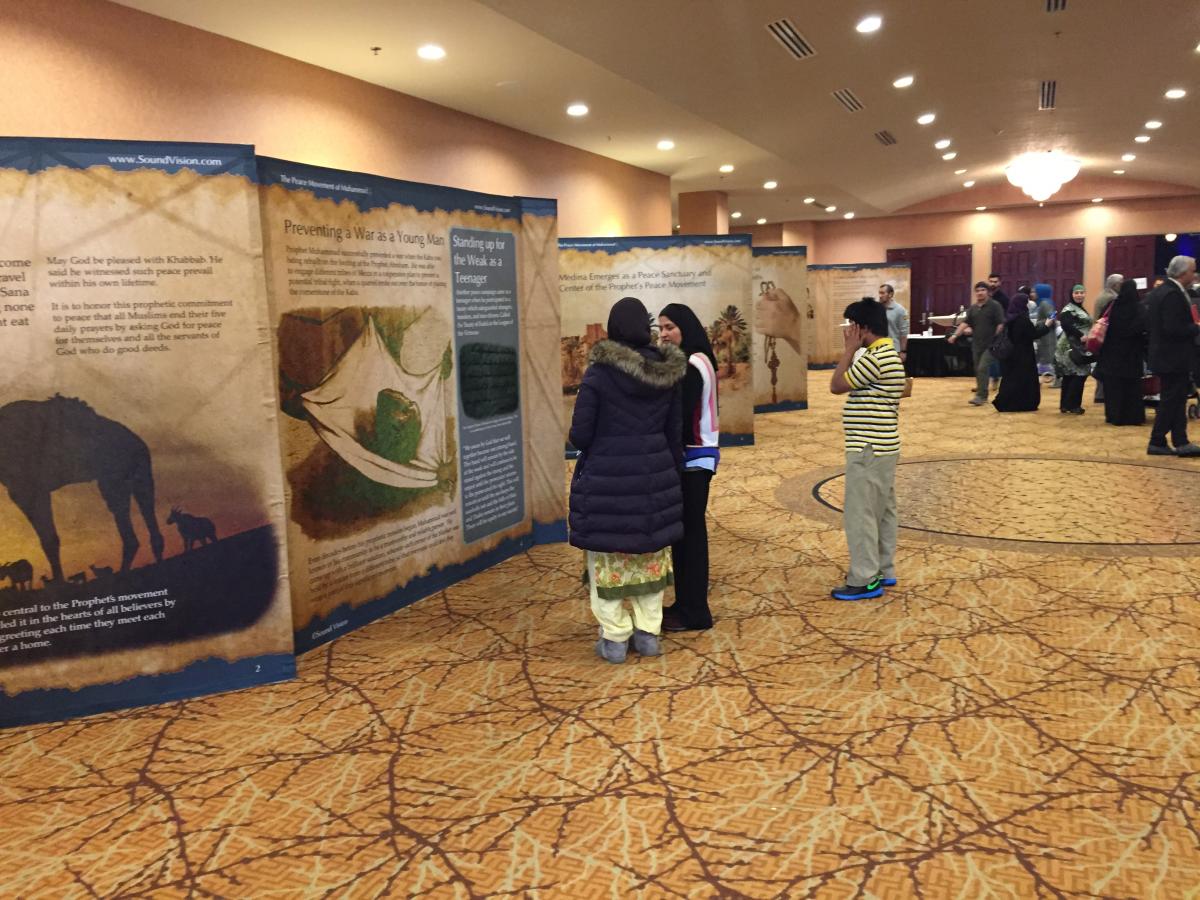
One of the rights children have over their parents is that they are given good names. The 11th century scholar Abu al-Hasan Ali ibn Muḥammad al-Mawardi, may Allah have mercy on him, said in his book Nasihat al-Muluk that “when a child is born, one of the first ways of honoring him and treating him kindly is to give him a good name, because a good name has an effect on the soul when first hearing it.” (p. 167). Of the beautiful names that we can give to our children are the names of the Prophets, peace be upon them, and the greatest of them was Prophet Muhammad, peace and blessings be upon him. It is no wonder so many parents opt for this name as a first or middle name for their sons.
A Beautiful Name
The name, Muhammad, is mentioned four times in the Quran, and the 47th chapter is named Muhammad, as well. It means “the one who is praised,” and indeed, the last and final Prophet of Allah, peace and blessings be upon him, is praised all around the world by at least a fifth of the world’s population in speech and during prayer as we ask Allah to send him salutations multiple times a day. Even non-Muslims praise him as one of, if not, the most influential leader of all time. There is no denying the impact of his name on the world.
In a beautiful hadith, the Prophet, peace be upon him, himself said,
“Verily, I have many names: I am Muhammad, I am Ahmad, I am the eraser through whom Allah erases unbelief, I am the gatherer at whose feet the people will be gathered, and I am the last prophet after which there are none.” (Muslim, 2354)
And a Popular Name, Too
In December 2019, the popular parenting website, Babycenter, reported that the name Muhammad, along with its alternate spellings, made the top 10 list of most popular boy names in the United States for the first time. The name has been steadily climbing the charts since entering the top 100 in 2013.
This was nothing new in Europe, where a year earlier on September 26, 2018, the BBC reported that if all the different variations of the spelling of Muhammad were counted together, then it would be the most popular name for baby boys in England, surpassing the second most popular name, Oliver, by over 1000.
These staggering numbers remind me of what I told myself as a young Muslimah in my early 20s, “if I ever have a baby boy, I will not name him Muhammad!” While I loved the Prophet Muhammad, peace be upon him, dearly, I preferred not to use his name for two main reasons.
The first was that I did not think my family would be able to pronounce it. Being a first-generation Latina, most of my extended family lives in Puerto Rico and they do not speak any English, much less Arabic. The second reason was that the name was just so common. My friend, who introduced me to Islam, once joked that if someone were to yell, “MUHAMMAD!” in the back of a movie theater in Egypt, more than half the audience would turn around. I wanted my children’s names to be unique.
A Relevation
When I was pregnant with my second child and I found out the baby was a boy, I did not have a specific name picked out. He was conceived while I was living in Egypt (which strikes me as poignant as I write this), but I returned to the U.S. in my last trimester to give birth. One Friday, I went to jummah, about eight months pregnant at the time, and the khutbah was about the Prophet Muhammad, peace and blessings be upon him. The imam spoke passionately about his character and manners in dealing with non-Muslims. Then, he mentioned a hadith that was so powerful that it brought me to tears.
Abu Huraira reported that the Messenger of Allah, peace be upon him, said,
“By the one in whose hand is the soul of Muhammad, none from this nation of Jews and Christians hears of me, and then dies without having faith in my message, but that he will be an inhabitant of the Hellfire.” (Muslim, 153)
Upon hearing this, I knew that my son’s name had to be Muhammad. His name would bring honor to my family and be a means of calling them to Islam. He would be, as far as I knew, the first Muhammad in my family and that of my husband. I understood the consequences of the decision were that our relatives would have no excuse on the Day of Judgement to say they never heard the name. At the same time, I felt that it was my duty to let them hear it, to give them the opportunity to ask questions, to pronounce it from their own lips: Muhammad.
Connection to my Latin Heritage
One of the criteria I had for naming my children was that the names were easy to say in both English and Spanish. I had been afraid that the name, Muhammad, would be too complicated for my Spanish-speaking relatives to pronounce, but in hindsight, about 8% of Spanish vocabulary comes from Arabic. Additionally, the name of our Prophet, peace and blessings be upon him, is not new to Latin America, but part of our Islamic heritage that came by way of Spain, North and West Africa, and the indigenous who made contact with Muslims before the discovery of the “New World.” Prophet Muhammad’s name was proclaimed in Latin America way before we were born; we were only bringing it back.
Although the Prophet’s name is sometimes translated as "Mahoma" in Spanish, this is a deliberate distortion of the name. Spanish Christians who were opposed to Islam and Muslims used the name Mahoma as an insult by likening it to Maozim, a false prophet in the Bible, and as a twist on the Arabic, using the particle “ma” as a negation. Instead of the name being “the most worthy of praise,” it becomes “not praiseworthy.” The correct pronunciation in Spanish is “MU JAM MAD” (the letter “J” in Spanish is pronounced like “h” in English). Naming my child, Muhammad, thus became a form of resistance to colonialism and centuries of bigotry against Muslims. When I introduced my family to my newborn, Muhammad, not only were they able to say it properly, but they also appreciated its uniqueness.
The sixth edition of The Columbia Encyclopedia (2000), stated that the name, Muhammad, along with its variations in spelling, is the most common given name in the world. However, this is not the case in Puerto Rico or other parts of Latin America. So, I was still able to give my child an exceptional name. After naming my son, Muhammad, some of my Latino Muslim friends followed suit. Now there are Muhammads in our community with Spanish surnames like Guadalupe, Ortiz, Franco, Hernández, etc., all original and all signs of Allah’s mercy to our community. And, even if we had millions upon millions of Muhammads, I would still not change a thing.
Wendy Díaz is a Puerto Rican Muslim writer, award-winning poet, translator, and mother of six. She is the co-founder of Hablamos Islam, Inc., a non-profit organization that produces educational resources about Islam and culture in Spanish. She is also the Spanish content coordinator for the Islamic Circle of North America’s WhyIslam Project and has also written, illustrated, and published a dozen children’s books. Díaz lives with her husband and family in Maryland.





Add new comment